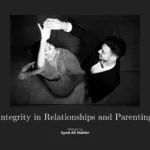Ultimate Hack to Overcome Anxiety
Anxiety is often rooted in the fear of losing something or facing the unknown. While it’s a natural response, overcoming it requires courage—a quality we must cultivate intentionally. If you’re looking for a practical way to conquer anxiety, this blog post will guide you step-by-step.
What Causes Anxiety?
Anxiety stems from emotions or situations we are unwilling to confront. It could be fear of failure, judgment, or the unknown. But what if you could turn those uncomfortable feelings into stepping stones for growth?
The Secret to Overcoming Anxiety
The ultimate hack is simple: confront your fears and build courage. Courage doesn’t come naturally like fear; it’s something you must develop over time. Here’s how:
1. Embrace Your Fears
Start by sitting with your emotions instead of avoiding them. When you avoid uncomfortable feelings, they grow stronger. By facing them, you reduce their power over you.
2. Do the Uncomfortable
Begin incorporating small, uncomfortable actions into your daily routine. For example:
Wake up early: If waking up early feels daunting, challenge yourself to do it consistently.
Travel alone: Fear of public transport or traveling solo? Start small and face it head-on.
Go on a solo outing: Whether it’s a movie, dinner, or a coffee date, doing things alone boosts confidence.
These small actions build resilience and help you step out of your comfort zone.
3. Practice Courage Daily
Every time you face a fear, you’re building courage and self-confidence. With each step, you weaken the hold anxiety has over you.
The Positive Cycle of Courage and Confidence
As you tackle uncomfortable situations, you’ll notice a shift. Each win, no matter how small, fuels your confidence. This confidence empowers you to face bigger fears, creating a cycle of growth and resilience.
Why This Hack Works
By embracing discomfort, you train your mind to stop associating anxiety with danger. Instead, it starts seeing challenges as opportunities for growth. Over time, anxiety loses its grip, and courage takes its place.
Final Thoughts
Overcoming anxiety is a journey, not a destination. It requires consistent effort and a willingness to face your fears. Remember, anxiety might be natural, but courage is a choice. Start small, stay consistent, and watch as your confidence grows, transforming your life.
Why Space Doesn’t Solve the Problem
When conflicts arise in a relationship, many couples default to taking a break or giving each other space. While personal space is crucial for healthy relationships, using it as an escape route during conflicts can do more harm than good. If you’re struggling with unresolved issues, this blog will guide you on how to approach conflicts effectively, reduce anxiety, and strengthen your relationship.
The Myth of Space During Conflict
When emotions run high—anger, hurt, or frustration—it’s tempting to avoid confrontation by taking space. But does this resolve the issue? No. In fact, it often makes things worse.
Imagine one partner is ready to communicate while the other evades the discussion. The unresolved emotions of anger, hurt, or anxiety remain bottled up. Days pass, and instead of resolving the conflict, the problem grows bigger. When the couple finally reconnects, they find themselves in the same emotional turmoil—or worse.
Why Communication is Key
Here’s why open communication is vital during conflicts:
1. Prevents Escalation: Avoiding the issue doesn’t make it go away. Addressing it head-on helps prevent misunderstandings and resentment.
2. Provides Closure: Unresolved conflicts can lead to anxiety and lingering negativity. Talking it out offers both partners the closure they need to move forward.
3. Strengthens Emotional Bond: Healthy communication fosters trust and deepens the connection between partners.
When is Space Healthy?
Taking space can be beneficial, but only under specific conditions:
After Resolution: Once the conflict is resolved, a short break can help you recharge and reflect.
To Process Emotions: If emotions are too intense for productive communication, take a brief pause to calm down before addressing the issue.
How to Resolve Conflicts Without Taking Space
Here are actionable steps to manage conflicts while staying present:
1. Stay in the Moment
When a conflict arises, resist the urge to walk away. Stay present and acknowledge your emotions. This not only reduces anxiety but also shows your partner that you value the relationship.
2. Communicate Honestly
Express your feelings clearly and encourage your partner to do the same. Use phrases like:
“I feel hurt because…”
“Can we find a solution together?”
3. Listen Actively
Listening is just as important as speaking. Give your partner the space to vent their emotions without interrupting or invalidating them.
4. Focus on Solutions
Instead of dwelling on the problem, shift your focus to finding solutions. Collaborate to address the root cause of the conflict.
5. Seek Closure Before Taking Space
Only take a break when the conflict is resolved, and both partners feel heard. Use the time apart to recharge, not to avoid unresolved issues.
Final Thoughts
Avoiding conflicts by taking space doesn’t solve the problem—it only postpones it. Healthy communication is the foundation of any strong relationship. By staying present, addressing issues, and working towards solutions, you not only reduce anxiety but also build a stronger, more resilient bond with your partner.




